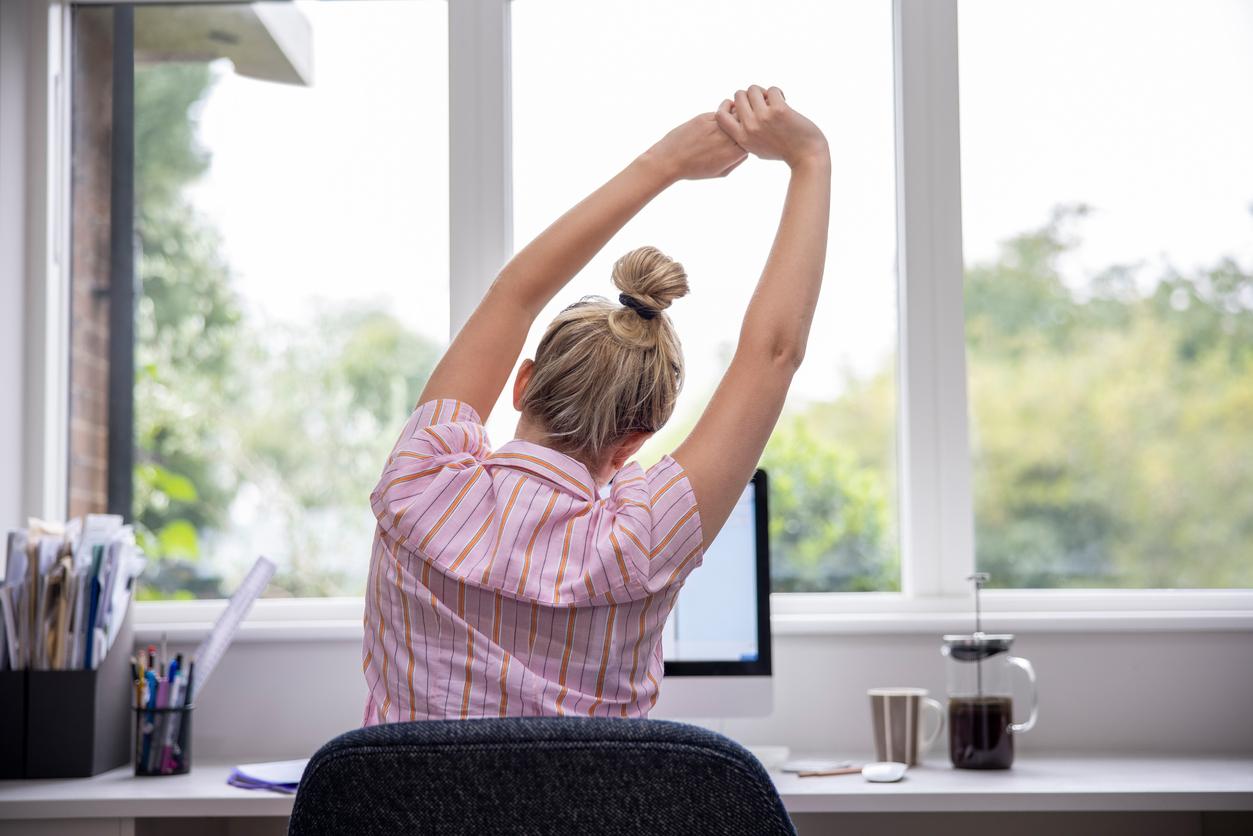Prolonged sitting and inactivity have harmful effects on health, but certain good gestures can combat this sedentary lifestyle which is not recommended.

- 31% of the world’s population do not get the recommended amount of physical activity to protect their health, which is at least 150 minutes of moderate-intensity physical activity or 75 minutes of vigorous-intensity physical activity per week.
- Prolonged sitting promotes musculoskeletal disorders. Several studies show that it also increases the risk of several diseases such as type 2 diabetes, cardiovascular disease, certain cancers or even premature death.
Increasingly sedentary teenagers display constantly falling physical abilities. This is what a recent study by the Ministry of Sports and Matmut reveals. But young people are not the only ones to be less active. A sedentary lifestyle is gaining ground in all age groups.
Office work, video games, computers, mostly car journeys… many of you spend more time sitting than moving. However, the lack of physical activity promotes many health problems such as cardiovascular disease, cancer, hypertension and obesity. Two doctors shared with the site best life their tips for reducing the harmful effects of too much sitting.
Take frequent breaks
If you spend your day behind a desk, it is important to take the time to move regularly. “It is crucial to make an effort to get up and move around frequently throughout the day”Dr. Conor O’Flynn tells Best Life. “This might involve setting a timer to remind you to take a short break every hour, during which you can get up, stretch or take a short walk. Alternatively, you might consider using a standing or adjustable desk that suits you. allows you to alternate between sitting and standing throughout the day.
To exercise
Routine “metro, work, sleep” sometimes leads to giving up sporting activities. However, sport is one of the best ways to offset the effects of sitting for long periods of time.
“In addition to interrupting sitting periods, it is also important to incorporate physical activity into your daily routine”recalls Dr. O’Flynn. “This may involve taking a walk during lunch breaks, jogging after work, or joining a sports or fitness class after work. By staying active, you help maintain good posture, improve circulation and increase energy levels. Anything that is likely to reduce the negative impacts of sitting for long periods of time”adds the expert.
Have a balanced and appropriate diet
Dr. Sony Sherpa, a well-being specialist, notes for her part that you must adopt a diet adapted to your activity. So if you sit for long hours, she recommends “eat small portions throughout the day instead of three large meals”. It helps to maintain “a stable energy level”. She advises avoiding “excessive snacking during these periods of inactivity, as this could lead to weight gain over time due to inadequate nutritional intake”.
Prioritize ergonomic equipment
Prolonged sitting does not only increase the risk of heart disease or cancer, it is also harmful to the lower back, especially if you do not have the appropriate equipment. Make sure you have a comfortable chair that provides adequate support for your lower back.
“You should also make sure your desk is set up correctly, with your keyboard and mouse placed within easy reach and your screen positioned at eye level to minimize strain on your neck and eyes”advises Dr. O’Flynn
Do stretches
Stretching isn’t just for workouts. They can also help counter the effects of prolonged sitting.
“There are simple exercises you can do at your desk to help reduce stiffness and discomfort.”says Dr. O’Flynn. “This can include neck rotations, back stretches, leg lifts, or even just a few squats or lunges. By taking a few minutes every hour to do these exercises, you can help your muscles stay active and reduce impact. negatives of sitting assures the health professional.
Stay hydrated
Drinking water regularly can help the body cope with prolonged sitting and its harmful effects on health. “Staying well hydrated can reduce fatigue caused by long periods of sitting”warns wellness specialist Dr. Sony Sherpa.


















